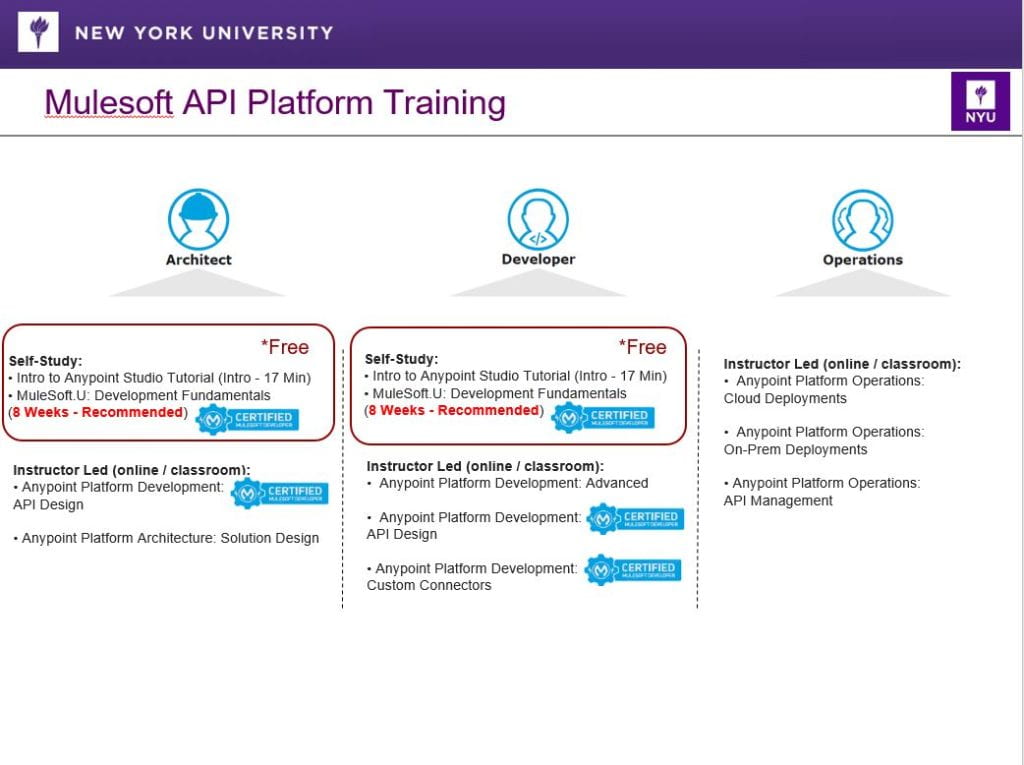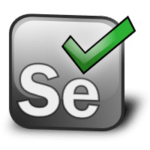An application program interface (API) is a set of routines, protocols, and tools that assist developers in building software applications and specify how components should interact. They’re like building blocks which a developer can assemble—a way to access data components as well as a structure for how that data is used in an application.
Mulesoft Training

Access training at – https://trailheadacademy.salesforce.com/products/mulesoft#f-products=Mulesoft Self Paced Trainings –
|
Additional Tools

|
Insomnia is a free cross-platform desktop application that takes the pain out of interacting with HTTP-based APIs. Insomnia combines an easy-to-use interface with advanced functionality like authentication helpers, code generation, and environment variables. There is also the option to subscribe to a paid plan to gain access to encrypted data sync and team collaboration. |

|
Postman is the complete toolchain for API developers. It is a great tool for prototyping APIs, and it also has some powerful testing features. Postman is a Google Chrome app for interacting with HTTP APIs. It presents you with a friendly GUI for constructing requests and reading responses. The people behind Postman also offer an add-on package called Jetpacks, which includes some automation tools and, most crucially, a Javascript testing library. This post will walk you through an example that uses those testing features. While they won’t replace your focused unit tests, they do breathe new life into testing features from outside your applications. This makes it extremely valuable for functional testers or for developers who love to test outside-in. |
Application Development Tools

|
A proprietary team collaboration software product, developed by Atlassian. Confluence provides a single source of truth for the creation and storage of meeting notes, project plans, product requirements, and more. This software is often used in combination with Jira (see below). Some administrative units at NYU provide licensed versions of Confluence to their staff; contact your local IT support staff for more information. |

|
A free, open source software tool that enables developers to test their software by running automated acceptance tests written in a behavior-driven development (BDD) style. |

|
Development platform for hosting and reviewing source code, managing projects, and building software. |

|
Development platform for hosting, issue management, version control, code review, automation via continuous integration CI, continuous deployment CD, and monitoring. |

|
Automation server written in Java. Jenkins helps to automate the non-human part of the software development process, with continuous integration and facilitating technical aspects of continuous delivery. |

|
A proprietary issue tracking software product, developed by Atlassian. Jira provides bug tracking, issue tracking, and project management functions. This software is often used in combination with Confluence (see above). Some administrative units at NYU provide licensed versions of Jira to their staff; contact your local IT support staff for more information. |

|
Software-testing framework for web applications. It provides a playback tool for authoring tests without the need to learn a test scripting language. |
General Training Resources
| API Evangelist | Blog explaining what APIs are, consuming and providing APIs, security, and other important topics. |
| Lynda.com | Offers a wide range of software and developer training videos. Free for current NYU community members. |

